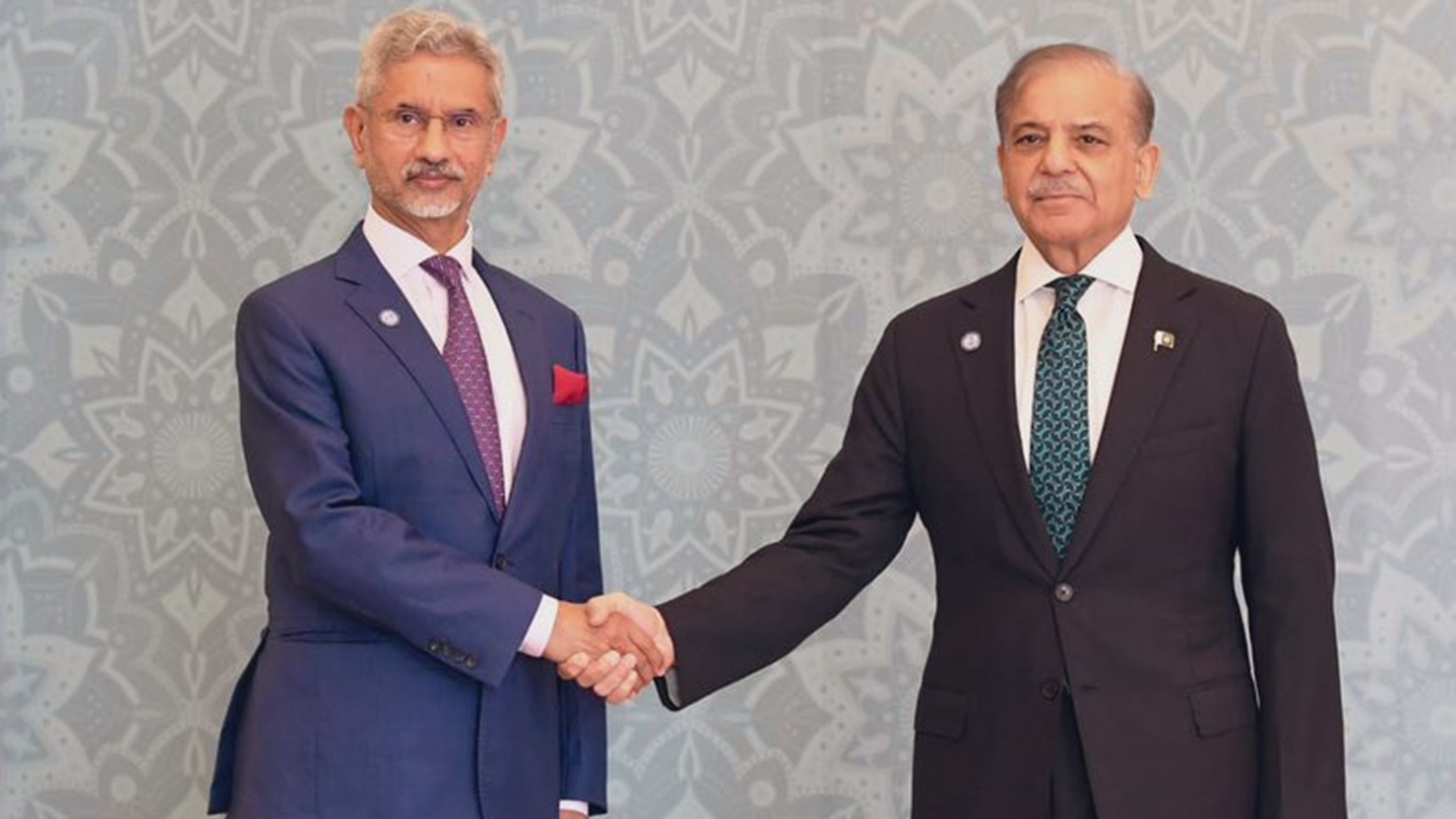Pakistan Finance Minister Muhammad Aurangzeb was in Washington earlier this week to attend the annual meetings of the International Monetary Fund and World Bank. While speaking at a press conference at the Pakistan embassy, he said that not trading with your neighbours is “illogical”. Pakistan had severed trade with India in 2019 following the abrogation of Article 370. However, both the Prime Minister and Foreign Minister recently expressed a desire to consider resuming trade ties with India. The press weighs in on the benefits of Pakistan-India trade, which could lead to a growth in trading within South Asia and benefit the region as a whole.
Express Tribune (October 31) cites the government’s reluctance, despite public speeches that suggest otherwise, saying, “PML-N governments especially have always touted the benefits of trade with India and separating trade from the Kashmir dispute, but just a few years ago, the PML-N was mocking the PTI government for wanting to the same thing.”
News International (October 29) takes a broader view of trade issues in Pakistan saying, “Beyond the India-specific issues, Pakistan’s trade relationships across the region remain significantly underdeveloped… Pakistani exporters have often shown a preference for Western markets, which, while valuable, entail high logistical costs.”
The overall takeaway from the media is, “Engaging more with regional neighbours, including Afghanistan, Iran, and even distant Southeast Asian nations, could help Pakistan cut costs while fostering a more diversified trade network.” (News International, October 29)
Nijjar case allegations
The recent India-Canada fracas with the Canadian government accusing Indian officials of being involved in the Hardeep Singh Nijjar assassination is the spotlight in Pakistan’s media.
According to Dawn (November 1), this “points to a campaign of state-sponsored terrorism originating from New Delhi.” Urging India to rethink its tactics, the editorial says, “The BJP’s ‘muscular’ policy of targeting dissidents on foreign soil has clearly backfired, and the Indian state needs to abandon such subversive behaviour.”
Express Tribune (November 1), on the other hand, asks India to take accountability: “Delhi cannot just get away with knee-jerk reactions and must come to address these fissures in all seriousness.”
The editorial also points to a potentially larger pattern in these accusations saying, “The unrest in the ethnic, religious and communal realms — whereby Delhi wants to implement a common code of societal interaction by snubbing the sentiments of minorities and denying them their rights — is now an international issue… The way forward for India is to watch its steps, and not to go on intimidating minorities and transgressing diplomatic norms.”
Mastung bomb blast
On Friday, a bomb blast in Balochistan’s Mastung killed nine, including five children, when an improvised explosive device (IED) attached to a motorcycle was detonated in the vicinity of a school and a hospital. According to some sources, the intended target was a police vehicle guarding a polio vaccination team.
With a surge in terrorist attacks in August and September in Khyber Pakhtunkhwa and Balochistan, Daily Times believes that this “targeting of a police vehicle guarding a polio team is yet another sign of the persistent threat Pakistan faces, where attacks aim not only to instil fear but to hinder developmental and health-related programmes essential to public welfare.”
Considering the bombing was near a girls school, Dawn says, “Regardless of the perpetrators’ ideological background, the targeting of children is the worst form of terrorism, and needs to be strongly condemned by all quarters.”
PIA sale issue
The Pakistan government has been attempting to privatise Pakistan International Airlines (PIA), in order to adhere to IMF’s conditions, offering a minimum bid of PKR 85 billion. Of the six pre-approved groups, only Blue World City, a real estate company, participated in the final bidding. The offer presented by the company was much below the government’s expectation — at a paltry PKR 10 billion for 60 per cent stake. The fact that this bidding process was broadcast live has also been subject to scrutiny by the media given the unfortunate outcome.
The Nation strongly objects to this offer saying, “As it stands, the government should firmly reject this bid. It’s not only insufficient; it comes from a company with no expertise in aviation.” Instead, it suggests that the government should think about “pausing the process, reassessing potential bidders, adjusting the terms, and trying again with a more strategic approach.”
News International raises a larger question here, with respect to the sale process: “The government’s approach to this privatisation debacle signals a broader issue; if it cannot effectively manage the sale of a major state asset, what confidence can we have in its ability to handle other privatisation initiatives that lie ahead?”
adya.goyal@expressindia.com



